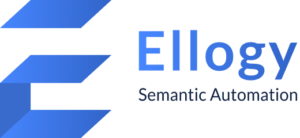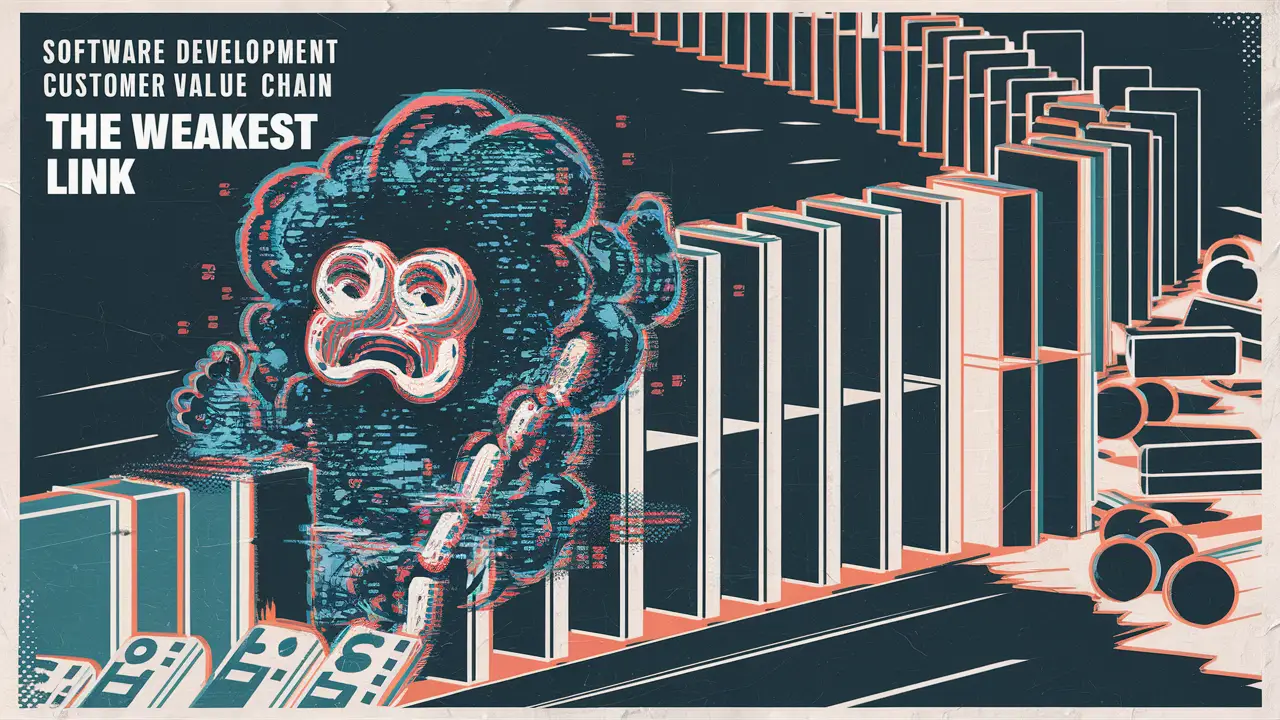The customer value chain plays a crucial role in software development, ensuring that products are of high quality and meet user expectations. However, various weak links can impede the success of projects, such as requirements gathering, stakeholder communication, quality assurance, change management, and deployment. By effectively addressing these areas, project execution can be smoother and customer satisfaction can be increased. Introducing Ellogy, an AI-powered solution that aims to improve these aspects and simplify the software development process.
Requirements Gathering and Analysis: The Foundation of Successful Projects
Properly collecting and analyzing requirements is essential for laying a strong foundation for any software project to succeed. Any miscommunication or lack of clarity during this phase can result in requirements being misunderstood or incomplete, ultimately leading to a software product that does not fully meet the customer’s expectations.
Challenges in Requirements Gathering and Analysis
- Ambiguity and Misinterpretation: Stakeholders often have different interpretations of requirements, leading to discrepancies and potential conflicts.
- Incomplete Requirements: Missing information can lead to functionality gaps and increased costs due to rework.
- Communication Barriers: Technical jargon and differing levels of understanding among stakeholders can hinder effective communication.
How AI Enhances Requirements Gathering and Analysis?
Leverages AI can bridge communication gaps and ensure clarity in requirements gathering. By using natural language processing (NLP), AI can analyze and interpret requirements documents, highlighting ambiguities and suggesting improvements. This ensures that all stakeholders have a clear and consistent understanding of project requirements, reducing the risk of miscommunication and misaligned expectations.
Ellogy’s AI-driven tools can automate the documentation process, ensuring that all requirements are captured comprehensively and accurately. This not only saves time but also enhances the quality of the requirements, leading to more successful project outcomes.
Stakeholder Communication: Aligning Expectations and Goals
Effective communication between developers, project managers, and stakeholders is essential for aligning expectations and project goals. Ineffective communication can lead to misaligned expectations, project delays, and increased costs.
Challenges in Stakeholder Communication
- Differing Perspectives: Stakeholders from different departments often have varying priorities and perspectives.
- Information Overload: Managing and communicating large volumes of information can be overwhelming and lead to critical details being overlooked.
- Geographical and Cultural Barriers: Distributed teams and cultural differences can further complicate communication.
How to Improve Stakeholder Communication?
This can be achieved through facilitating seamless communication among all stakeholders by providing a centralized repository for all project-related information. This ensures that everyone has access to the latest updates and can provide feedback in real time.
Ellogy uses AI to analyze communication patterns and identify potential issues before they escalate. By providing actionable insights and recommendations, Ellogy helps project managers address communication barriers and foster a collaborative environment.
Quality Assurance and Testing: Ensuring a Bug-Free Experience
Quality assurance and testing are critical in ensuring the software meets user expectations and functions as intended. Inadequate testing can result in software bugs and issues affecting user experience and functionality, leading to customer dissatisfaction.
Challenges in Quality Assurance and Testing
- Insufficient Testing Coverage: Limited resources and time constraints often lead to incomplete testing.
- Complex Test Scenarios: Testing complex functionalities can be challenging and time-consuming.
- Integration Issues: Ensuring seamless integration with other systems and platforms requires thorough testing.
How to Enhance Quality Assurance and Testing?
One key solution is employing AI to automate and enhance the testing process. By leveraging machine learning algorithms, AI can identify high-risk areas and prioritize testing efforts accordingly. This ensures that critical functionalities are thoroughly tested, reducing the risk of bugs and issues.
Ellogy’s AI-driven tools can simulate complex test scenarios, providing comprehensive testing coverage. This not only improves the quality of the software but also accelerates the testing process, allowing for faster project completion.
Change Management: Adapting to Evolving Requirements
Change is inevitable in software development, and effective change management is essential to ensure that projects stay on track. Poor management of changes in requirements or scope can disrupt the development process, leading to delays, increased costs, and reduced quality.
Challenges in Change Management
- Scope Creep: Uncontrolled changes can lead to project delays and budget overruns.
- Resistance to Change: Stakeholders may resist changes due to fear of the unknown or lack of understanding.
- Impact Analysis: Assessing the impact of changes on the project can be challenging.
How to Facilitate Change Management
AI-driven platforms provide a structured approach to change management. By using predictive analytics, AI can assess the potential impact of changes on the project and provide recommendations for mitigating risks.
Ellogy facilitates communication and collaboration among stakeholders, ensuring everyone is aligned and supportive of the changes. This reduces resistance and ensures a smoother transition, minimizing disruptions to the development process.
Deployment and Maintenance: Ensuring a Seamless User Experience
The deployment and maintenance phase ensures the software delivers a seamless user experience. Issues in deploying the software and providing ongoing support and maintenance can negatively impact the customer experience and the long-term success of the software.
Challenges in Deployment and Maintenance
- Deployment Failures: Issues during deployment can lead to downtime and user frustration.
- Ongoing Support: Providing timely and effective support is essential for customer satisfaction.
- Scalability: Ensuring the software can scale to meet growing user demands requires careful planning and execution.
How to Streamline Deployment and Maintenance
AI automates the deployment process, reducing the risk of errors and ensuring a smooth rollout. Using predictive analytics, AI can identify potential issues before they occur, allowing for proactive resolution.
Ellogy also provides AI-driven tools for ongoing support and maintenance. By monitoring system performance and user feedback, Ellogy can identify and address real-time issues, ensuring a seamless user experience. This not only enhances customer satisfaction but also contributes to the long-term success of the software.
Conclusion
The customer value chain in the software development industry is fraught with challenges, from requirements gathering and analysis to deployment and maintenance. Addressing these weak links is essential for delivering high-quality software that meets user needs and expectations.
Ellogy, with its AI-powered platform, provides a comprehensive solution to these challenges, enhancing communication, improving quality assurance, facilitating change management, and streamlining deployment and maintenance. By leveraging Ellogy, organizations can strengthen their customer value chain, ensuring smoother project execution and higher customer satisfaction.

FAQ
1. How does Ellogy improve requirements gathering and analysis? Ellogy uses AI to analyze and interpret requirements documents, highlighting ambiguities and suggesting improvements. This ensures clarity and consistency in requirements, reducing the risk of miscommunication.
2. Can Ellogy facilitate communication among distributed teams? Yes, Ellogy's centralized platform provides real-time access to project information and facilitates seamless communication among all stakeholders, regardless of their location.
3. How does Ellogy enhance quality assurance and testing? Ellogy employs AI to automate and prioritize testing efforts, ensuring comprehensive coverage and reducing the risk of bugs and issues.
4. What role does Ellogy play in change management? Ellogy uses predictive analytics to assess the impact of changes and provides recommendations for mitigating risks. It also facilitates stakeholder communication to ensure alignment and support for changes.
5. How does Ellogy streamline deployment and maintenance? Ellogy automates the deployment process and provides AI-driven tools for ongoing support and maintenance, ensuring a seamless user experience and enhancing customer satisfaction.





